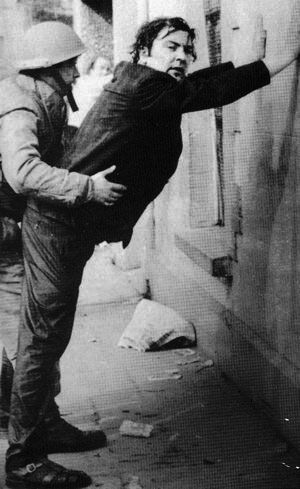
That's not the word they used, but it is the inescapable conclusion of the report released yesterday on the Bloody Sunday massacre in Derry.
On January 30, 1972, civil rights marchers in Derry were confronted by the English army of occupation. Without provocation the army opened fire and thirteen Irish demonstrators lay dead on the ground; another later died of his injuries.
The dead have now been utterly vindicated. A report by Mark Saville, a justice of the English Supreme Court, which took twelve years and cost nearly $300 million, concludes that the killings were unprovoked and unjustified. The report finds that the victims were unarmed, that the army targeted unarmed civilians, that the army fired without warning, and that there was no justification for the killings.
I call that murder.
Cross posted from Rational Resistance.
It doesn’t look like there will be any prosecutions forthcoming.
When you think of all the collateral violence that Bloody Sunday incurred, those riflemen have a whole lot more blood on their hands than just that of the demonstrators.
Assaulted by police in 1972

and he won the Nobel Peace prize 26 years later for spending all of the interim time successfully working toward the Irish peace accords. He also received the Gandhi Peace Prize and the Martin Luther King Award.
I am not aware of anyone else who has received all three.
Justice rarely comes, and if it comes at all, it will only come slowly when it is the State doing the killing. We can thank people like John Hume for bringing an end to so much of the violence.
From the SDLP website